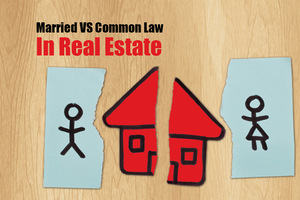A common problem in Family Law situations is when the client sells a matrimonial home and plans to use their share of the proceeds to buy another home. This “Dream Client” can become a nightmare if the agent is not careful. It is not uncommon for spouses to assume they will receive half (1/2) the equity of the house upon the sale. It is important for agents to ensure their client has a separation agreement in place, dealing with the proceeds of the sale of the house, or at least an irrevocable direction to the lawyer acting on the sale for what is required to complete the new purchase, before the spouse commits to a firm agreement of purchase and sale on a new house.
Spouses can get very vindictive, and on a sale, will often insist the proceeds of the sale be held in trust by their real estate lawyer until all Family Law issues are resolved. If the proper caution is not taken as mentioned above, the spouse’s purchase can be thwarted and the purchasing spouse can be exposed to damages for failure to close.
Always make your client aware of this, and do not let them firm up without clarification of who gets what of the sale proceeds. Spouses can never count on their spouse continuing goodwill.
Knowledge is Power, which results in more business!
If you have any questions or concerns, please feel free to contact us at your convenience. If you have any suggestions for future topics please let us know.
Prepared by Don Travers, Solicitor with Paquette & Travers Professional Corporation
Contact toll free: 1-877-744-2281 Online: www.paquettetravers.com
Watch for more Travers Tidbits to follow each month!





